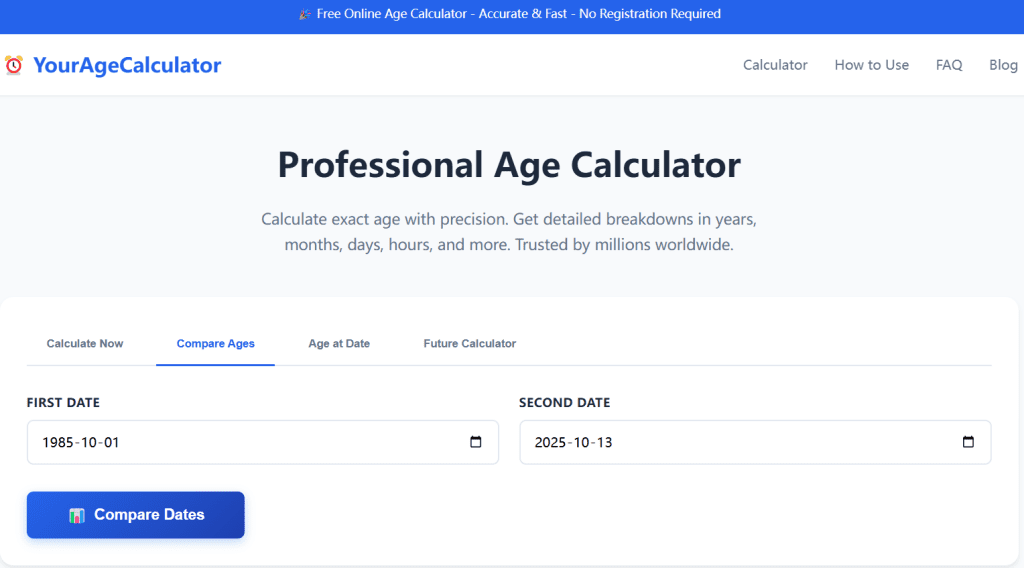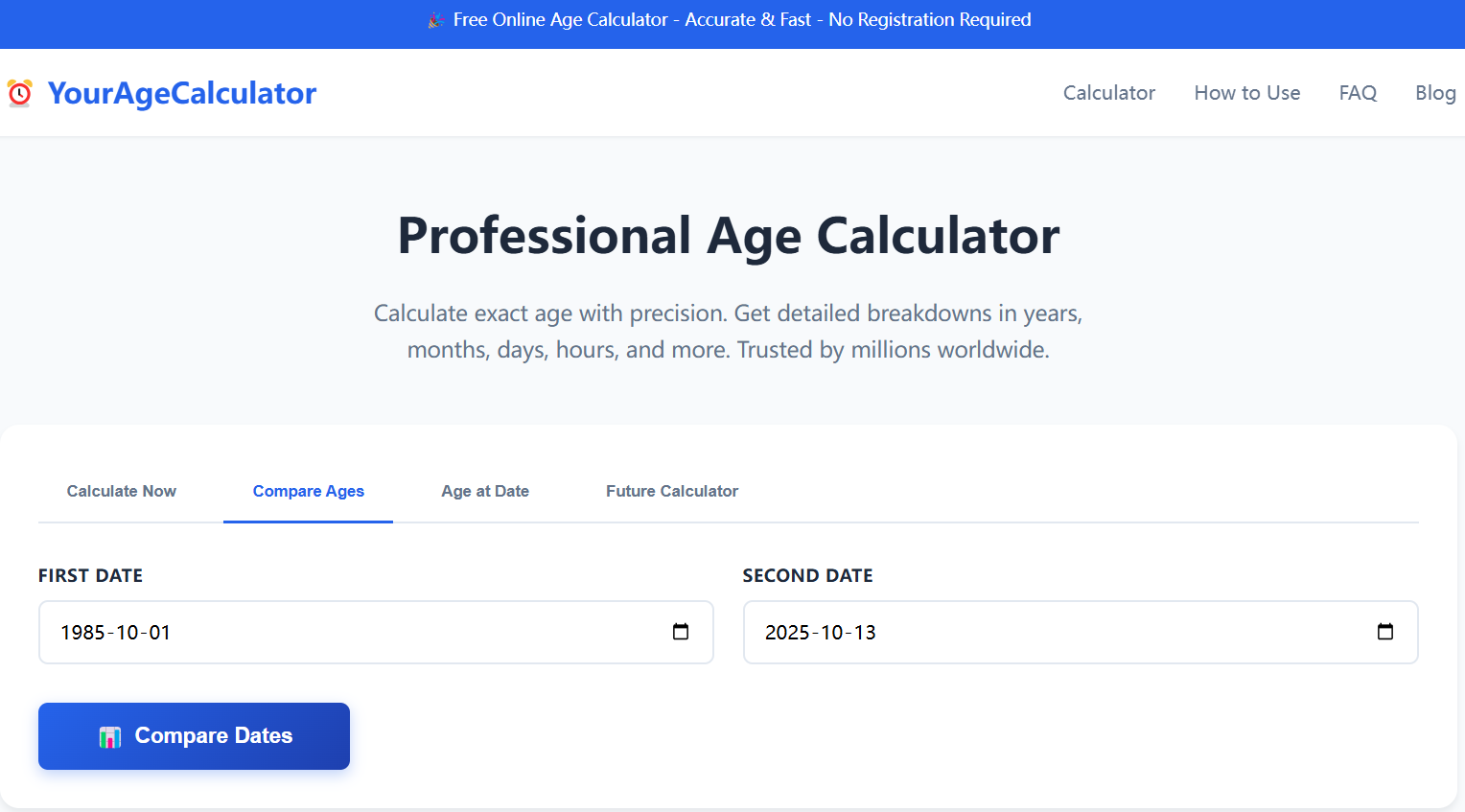While we often think of age as a simple number counting the years since birth, science reveals a much more complex picture. Understanding the difference between chronological age and biological age could be the key to unlocking a longer, healthier life.
Understanding the Fundamental Difference
What is Chronological Age?
Chronological age is the most straightforward concept of age—it’s the exact amount of time that has passed since your birth. This is the age you celebrate on your birthday, the number you write on official documents, and the standard measurement used throughout society.
Key characteristics of chronological age:
- Measured in years, months, and days
- Universal and consistent across all humans
- Moves forward at a constant, unchangeable pace
- Used for legal purposes, insurance, and social milestones
What is Biological Age?
Biological age represents how old your body appears and functions based on physiological evidence. It’s a measure of your body’s actual condition rather than simply how long you’ve been alive. Two people with the same chronological age can have dramatically different biological ages.
Key characteristics of biological age:
- Reflects your body’s functional capacity
- Can be younger or older than your chronological age
- Influenced by lifestyle, genetics, and environment
- Measured through various biomarkers and tests

How Biological Age is Measured
Scientists use several sophisticated methods to determine biological age, each examining different aspects of your physiological health.
Epigenetic Clocks
Epigenetic clocks are currently the gold standard for biological age measurement. They analyze chemical modifications to your DNA that change with age and lifestyle factors. The most common epigenetic tests include:
- Horvath’s Clock: Measures DNA methylation patterns across multiple tissues
- Hannum’s Clock: Uses 71 methylation sites to estimate biological age
- PhenoAge: Incorporates clinical biomarkers alongside methylation data
- GrimAge: Predicts mortality risk based on DNA methylation patterns
Physiological Biomarkers
Healthcare providers can assess biological age through routine clinical measurements:
- Cardiovascular health: Blood pressure, cholesterol levels, arterial stiffness
- Metabolic function: Blood sugar levels, insulin sensitivity, thyroid function
- Organ function: Kidney filtration rate, liver enzymes, lung capacity
- Body composition: Muscle mass, bone density, fat distribution
Functional Assessments
Simple physical tests can provide insight into your biological age:
- Grip strength: Measured with a hand dynamometer
- Balance and mobility: Timed up-and-go test, single-leg standing time
- Cognitive function: Memory tests, processing speed assessments
- Skin elasticity: Measures of collagen and skin health
Factors That Influence Biological Age
Your biological age is determined by a complex interplay of multiple factors, some within your control and others not.
Controllable Factors
Diet and Nutrition
- Mediterranean-style diets correlate with younger biological ages
- Calorie restriction and intermittent fasting may slow aging
- Processed foods and sugar accelerate biological aging
- Adequate protein intake preserves muscle mass
Physical Activity
- Regular exercise can reduce biological age by 5-10 years
- Both aerobic and strength training are important
- Sedentary behavior accelerates biological aging
- Consistency matters more than intensity
Sleep Quality
- 7-9 hours of quality sleep per night supports cellular repair
- Sleep deprivation increases inflammation and oxidative stress
- Consistent sleep schedules help regulate circadian rhythms
Stress Management
- Chronic stress accelerates telomere shortening
- Meditation and mindfulness practices may slow biological aging
- Healthy social connections protect against premature aging
Partially Controllable Factors
Environmental Exposures
- Air pollution and toxins can accelerate aging
- Sun exposure affects skin aging
- Chemical exposures in food and water
Genetic Predispositions
- Some people inherit “younger-acting” genes
- Genetic variations affect how we process nutrients and toxins
- Family history of longevity suggests genetic advantages
The Health Implications of Biological Age
Understanding your biological age provides crucial insights into your current and future health status.
Disease Risk Assessment
Biological age serves as a powerful predictor for:
- Cardiovascular disease: Older biological age indicates higher heart attack and stroke risk
- Neurodegenerative conditions: Linked to increased Alzheimer’s and Parkinson’s risk
- Cancer susceptibility: Accelerated biological aging correlates with higher cancer incidence
- Metabolic disorders: Predicts type 2 diabetes and metabolic syndrome development
Longevity Forecasting
Research shows that biological age is a better predictor of lifespan than chronological age:
- Each 1-year increase in biological age over chronological age carries an 8-15% higher mortality risk
- People with younger biological ages tend to live longer, healthier lives
- Biological age can identify individuals at risk for premature death decades in advance
Practical Strategies to Reduce Your Biological Age
The exciting news is that you can take concrete steps to lower your biological age, regardless of your chronological age.
Nutrition Strategies
Emphasize Anti-Aging Foods
- Colorful vegetables and fruits rich in antioxidants
- Healthy fats from olive oil, nuts, and avocados
- Lean proteins including fish and plant-based sources
- High-fiber foods to support gut health
Consider Time-Restricted Eating
- 12-16 hour overnight fasting periods
- Aligns eating patterns with circadian rhythms
- Supports cellular repair processes
Exercise Recommendations
Combine Different Exercise Types
- 150 minutes of moderate aerobic activity weekly
- Strength training 2-3 times per week
- Flexibility and balance exercises
- High-intensity interval training 1-2 times weekly
Lifestyle Modifications
Stress Reduction Techniques
- Daily meditation or mindfulness practice
- Regular nature exposure
- Hobbies and activities that bring joy
- Healthy social interactions
Sleep Optimization
- Consistent bedtime and wake-up schedule
- Dark, cool sleeping environment
- Digital device avoidance before bed
- Relaxation routines to prepare for sleep
Environmental Adjustments
Reduce Toxin Exposure
- Choose organic produce when possible
- Use natural cleaning and personal care products
- Filter drinking water
- Improve indoor air quality
Monitoring Your Progress
Regular assessment helps you track the effectiveness of your anti-aging efforts.
Professional Testing
Consider annual or biennial biological age testing through:
- Commercial epigenetic testing services
- Comprehensive blood panels
- Physical function assessments
- Body composition analysis
At-Home Tracking
Monitor these indicators of biological age improvement:
- Resting heart rate and blood pressure trends
- Sleep quality and energy levels
- Physical endurance and strength
- Recovery time after exercise
- Cognitive performance and memory
When to Seek Professional Guidance
Consult healthcare providers if you notice:
- Rapid declines in physical or cognitive function
- Unexplained changes in biological age markers
- Difficulty implementing lifestyle changes
- Concerns about specific aging-related symptoms
The Future of Age Management
Emerging research continues to advance our understanding of biological aging:
- Senolytics: Drugs that clear aged, dysfunctional cells
- Epigenetic reprogramming: Techniques to reset biological age
- Personalized interventions: Tailored approaches based on individual biomarkers
- Advanced testing: More accurate and accessible biological age assessments
Taking Control of Your Healthspan
The distinction between chronological and biological age represents a paradigm shift in how we approach health and aging. While we cannot stop the passage of time, we have significant power to influence how our bodies age at a biological level.
By understanding your biological age and implementing strategies to improve it, you’re not just adding years to your life—you’re adding life to your years. The goal isn’t merely longevity but healthspan: living vibrantly and functionally throughout your entire lifespan.
Remember, it’s never too late—or too early—to start taking steps toward a younger biological age. Each positive lifestyle choice contributes to building a foundation for lasting health and vitality, regardless of what your birth certificate says.

